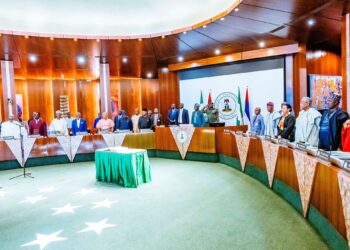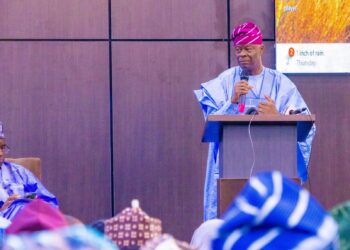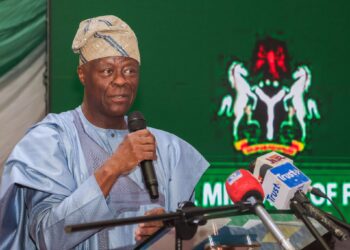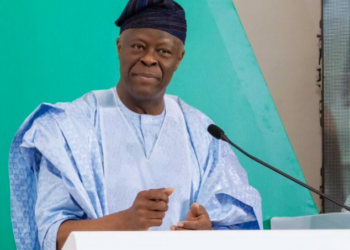The Federal Government has confirmed a N1.5 trillion investment in nine major highway projects spanning over 900 kilometres, to be delivered through 25-year public-private concession agreements under the Highway Development and Management Initiative (HDMI).
The announcement followed a high-level meeting chaired by the Minister of Finance and Coordinating Minister of the Economy, Wale Edun, alongside the Minister of Budget and Economic Planning, Senator Abubakar Atiku Bagudu.
According to a statement on the Ministry of Finance’s official X account, the session brought together key concessionaires responsible for managing the projects.
“The Honourable Minister of Finance and Coordinating Minister of the Economy, Mr. Wale Edun, today chaired a high-level meeting with partners under the Highway Development and Management Initiative (HDMI), reinforcing the Federal Government’s commitment to unlocking infrastructure investment through long-term private concessions.
“The session, jointly held with the Honourable Minister of Budget and Economic Planning, Senator Abubakar Atiku Bagudu, convened concessionaires managing nine highway projects covering over 900km, with a combined value of N1.5 trillion and expected to be delivered under 25-year concession agreements,” the statement read in part.
According to the ministers, the initiative reflects the current administration’s strategic focus on private sector-led infrastructure as a means to drive inclusive economic growth, close funding gaps, and create jobs.
More insights
Minister Edun noted that the country’s return to macroeconomic stability—with GDP growth of 3.4% in 2024—must now be matched with faster, broader development driven by private capital.
“We have stabilised the economy. Now we must grow faster, broader, and inclusively. Private-led infrastructure delivery is central to that mission,” Edun stated.
He cited the Benin-Asaba highway concession as proof of concept, already attracting support from institutional and global investors. He also conveyed the Minister of Works’ directive that concessionaires must show proof of funds to ensure timely mobilisation.
- Senator Bagudu emphasised the administration’s shift toward toll-based highway development, which allows investors to recover their capital through user fees while easing the pressure on public finances. He described the programme as a core pillar of the Renewed Hope Agenda, which promotes fiscal discipline, strategic investments, and private sector collaboration.
- The HDMI model aims to modernise Nigeria’s highway infrastructure by combining private investment with long-term national development goals.
With over 900km of roads targeted and N1.5 trillion in projected investment, the initiative marks one of the most ambitious road concession programmes in the country’s recent history.
What you should know
The Federal Government has previously highlighted the challenges of maintaining Nigeria’s 35,000-kilometre federal road network through annual budgets alone.
- In February, the Minister of State for Works, Muhammad Bello Goronyo, noted that years of neglect, inflation, and security concerns have exacerbated the nation’s infrastructure deficit, emphasizing the need for alternative funding models
- The adoption of a fully private-financed approach for the Benin-Asaba Superhighway marks a significant step toward addressing this funding gap. By leveraging private capital, the project reduces dependence on federal budgets while advancing critical infrastructure development.
- It is anticipated that roads financed under private-sector arrangements, such as the Benin-Asaba Superhighway, will be tolled upon completion.
This tolling model is expected to generate the revenue needed to recover construction costs and ensure the sustainability of such projects.
























